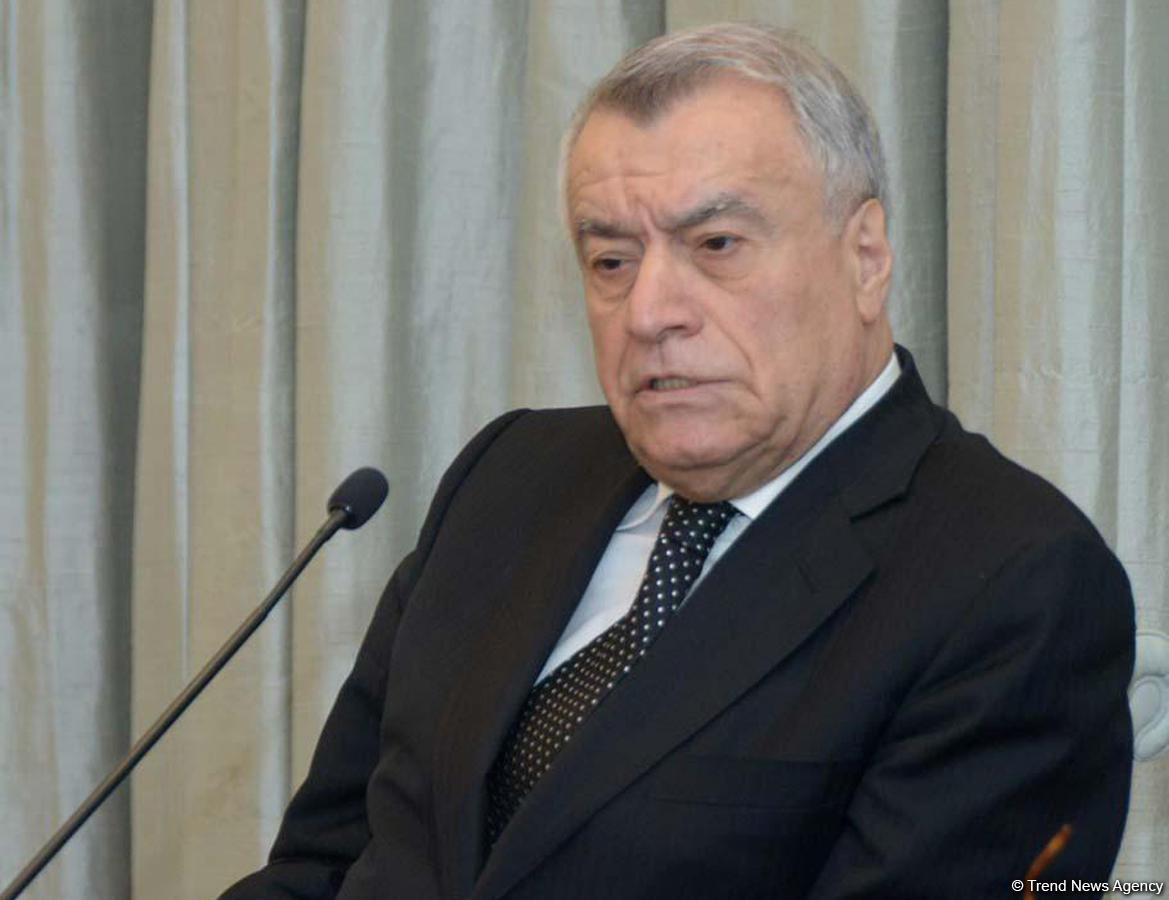Baku, Azerbaijan, April 19
Trend:
The internal contradictions in the OPEC (Organization of the Petroleum Exporting Countries) hampered to achieve success during the talks of oil-producing countries in Doha April 17, Natig Aliyev, Azerbaijani energy minister, said April 19.
Aliyev was commenting on the results of Doha talks on freezing oil production at the level of January held April 17.
The minister said that the agreement, which was to be signed in Doha to stabilize the oil price on the world market, envisaged freezing of oil production at the level of January till October 2016.
"The adoption of such a document could be a major signal for OPEC members and non-OPEC member-states," the minister said. "The draft agreement was submitted to the producers and exporters invited for the meeting."
"The draft agreement included such issues, aimed at preventing further decline in oil prices, as the participants' consent for freezing oil production, control for the countries' compliance with the assumed obligations," the minister said.
"The draft agreement also included the involvement of other countries in this process, establishing of a high-level monitoring committee, the formation of working groups to analyze the possible changes on the oil market after the document enters into force and other issues," the minister said.
"The meeting was delayed for six hours due to the consultations among Saudi Arabia, Iran and Qatar," the minister said. "This delay, as well as the content of the statements of Saudi Arabia, Russia, Qatar and Venezuela following the meeting held on February 16 showed that the hope for Doha meeting will not be justified.
The minister added that the new draft agreement submitted to the participants once again confirmed it.
"The new version of the draft agreement stressed that the agreement will be considered valid only if all OPEC member states agree with freezing of oil production," he said. "The participants were displeased with Saudi Arabia's this position."
"One of the initiators of the proposal to freeze oil production, Alexander Novak, Russian energy minister, protested, saying that the representatives of the countries arrived to sign, rather than to discuss."
The minister said that the contradictions over the level of freezing oil production also occurred during the meeting.
"There were proposals to freeze oil production at the level of January, March, and even indices for the first quarter of the year," Aliyev said. "However, in the end, due to the lack of a common mutual consent and the time needed it was decided to hold the next meeting in June."
The minister said that if the agreement had been signed, this meeting would have become the first ever when the OPEC members and other oil producing countries agree to cooperate.
"OPEC, which daily produces 97 million barrels of oil and controls one third of the global oil production, could have showed a strong stance and made a decision that meets the interests of Azerbaijan and other oil producers," Aliyev said. "However, OPEC wasn't ready for this, and this fact was caused mainly by geopolitical reasons."
The minister noted the importance of stabilization of oil prices for both producer and consumer countries, however, in his view, such countries as Saudi Arabia, Iran and Libya will continue to increase oil production.
"Saudi Arabia has announced plans to increase oil production to 12.5 million barrels per day, while Iran has plans to increase it to the pre-sanction level of four million barrels per day," Aliyev said. "It's obvious that the differences in opinions between the two countries, which can affect oil prices, make it impossible to achieve any agreement. Regarding the other producers, they aren't going to increase production."
The oil producers' meeting held Apr.17 in Doha on oil output freeze ended without an agreement. The event was attended by representatives of 17 countries.
---
Follow the author on Twitter: @MaksimTsurkov






